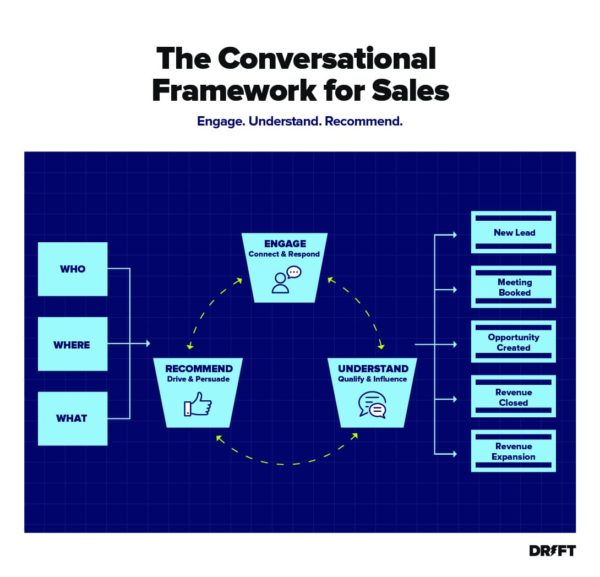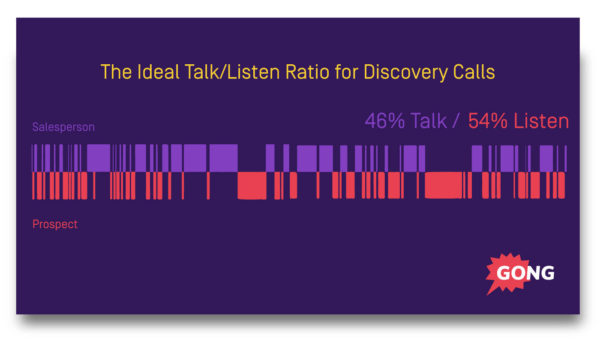Creative intelligence…that’s something for designers and art directors, right? Wrong.
As a sales rep, creative intelligence matters more to your role – and your organization – than you might assume. In the B2B world, customer experience has become a key differentiating factor. The way you sell is a huge part of that experience.
It’s a shame when people walk around saying they’re “not creative.” And yet, we’ve all heard that a thousand times. You might have even said it about yourself.
But it isn’t true.
Creative intelligence is made up of these five different factors: emotional, intelligence, cultural, social, and power. These combine to make up your creative quotient – how well you adapt and innovate (not how well you paint).
AI solutions like pipeline intelligence and AI chatbots are taking more of the day-to-day prioritizations and decisions off our plate. This opens up more opportunities for sales reps to connect with their accounts, prepare for conversations, and add value to their buyers.
If you want to be a successful closer, you’ll need more creative intelligence. Here are specific ways to improve your own.
1. Boost Your Emotional Quotient
The emotional quotient is what helps you adjust content and conversations to your audience. To match their tone and to truly care about their real needs.
The “pushy” salesperson is one who doesn’t listen. They try to push their agenda, regardless of what the other person is saying. You might do this unconsciously, by being unaware of what your buyer is going through, not asking the right questions, or by assuming that your solution can fit into every scenario your ideal customer profile (ICP) finds themselves in.
To increase your emotional intelligence as a sales pro, you need to be better versed on how your solution fits into the overall industry.
What’s going on in your customers’ world? What solutions do they really need?
For example, your solution might help finance managers incentivize travelers to keep trips under budget, when what the finance team really needs is something to track and consolidate travel invoices.
One place to start? Try increasing your capacity for discovery. Learn how to ask follow-up questions during discovery calls so you can dive deeper into their real needs. Rather than just running through your standard list of questions, really listen to what they’re saying and ask for more details before moving on.
The Conversational Framework for Sales (Engage, Understand, Recommend) can help.

Listen to every buyer and use obstacles as learning experiences. Even if you don’t close that account, you’ll understand more about what customers are dealing with. Plus, you’ll make the right recommendations that will lead accounts back to you when the timing is better.
2. Boost Your Intelligence Quotient
Your intellectual intelligence is part of your creative quotient as well. Fortunately, the way that intelligence is measured is rapidly changing. One example? Over half of colleges in the US have dropped the requirement to submit SAT scores when applying.
That’s significant because there are different forms of intellectual intelligence, such as being analytical, a problem solver, or a memorization whiz.
So, how can sales reps grow?
Take certifications that are related to your industry and take online classes about selling. For example, our Conversational Sales Certification, will help you get better at all sorts of buyer engagement, not just live chat but LinkedIn messages and long email threads with buyers who prefer not to hop on calls.
You should also learn your products’ real value drivers, and get really good at quantifying them for buyers so you can build strong business cases. The value framework will look slightly different for each buyer, so customize it to showcase the value specific to what your buyer wants to achieve.
Depending on your customer and your solution, you’ll take many factors into account. Work together as a team to come up with better calculations and matrices to add lead information and estimations into.
“Above all, Creative Intelligence is a way of expressing our humanity, our unique power to create, connect, and inspire.”
3. Boost Your Cultural Quotient
Do you recognize and respond to cultural diversity? This is the crux of having a high cultural quotient. It has to do with our awareness of differences and how we act upon them.
If you work for a multinational company, your sales team might only sell to the regions they live in. But even still, there can be very distinct microcultures in areas that are just 30 miles apart, or even neighborhoods.
To boost your cultural quotient, match the speed and intensity of how you talk to your buyer. But never attempt to adopt slang or even mildly mimic accents. As really social people, sales reps can do this accidentally, so be mindful. Instead, focus more on matching the energy and social cues of that person.
For example, people in southern states might be more open to small talk than those in the northeast. The most important thing is that you cater to the individual you’re speaking with, instead of resorting to stereotypes.
“Together these competencies give us a new foundation to build a more vibrant kind of economic system. People with creative intelligence are ushering in a new way of doing business…that tends to be socially, not transactionally based. Networks, not markets, are the core component.”
4. Boost Your Social Quotient
Your social quotient is (you guessed) all about your social skills. As a salesperson, you’ve probably got this in spades naturally.
You easily understand the people around you and adapt to their social cues. The idea of being “socially awkward” is foreign to you.
But your blind spot might just be your own self.
That’s right – the social element of creative intelligence isn’t just impacted by how well you know others, but how deeply you understand yourself.
Just like musicians watch their GRAMMYs performances to see how they should do better, you should listen to your sales calls. If your team uses Gong, you can listen back to calls to learn where you could have done better.
You’ll even be able to visualize your talk-to-listen ratio.

Image source: Gong
Listen to the calls in a new headspace, like when you’re taking a walk around the block, so your brain will be more open and primed for insights. Set a monthly or quarterly goal for the number of successful and unsuccessful calls you’ll listen to.
You can also involve more of your team members in this exercise by making a shared doc where you write down your own mistakes and what you could have done differently.
This will help everyone learn from each other and foster great receptiveness to coaching and feedback.
5. Boost Your Power Quotient
Your power quotient is made up of your ability to use your position and experience to both lead and persuade others. This should be done ethically.
In sales, there’s a big difference between persuasion and manipulation:
Persuasion:
- Helping someone to become aware of a problem they didn’t see before and offering the right solution
- Helping a prospect see that a different solution will be more effective than what they thought they needed
Manipulation:
- Leading someone to believe that there is an important problem that your solution can fix, even that problem isn’t significant enough
- Misrepresenting your solution as something that can fix a real problem for the buyer, even when it can’t, or it can do so only temporarily or superficially
To use your power intelligence ethically, you’ll need to lean on your emotional intelligence.
How can you see so-called “objections” for what they really are? Instead of pushing past everything on your list of common objections, get curious. In the old-school way of selling, an objection is treated like an excuse that shouldn’t be believed. Maybe for one buyer, that issue is a legitimate blocker. For another, it could be an obstacle that you can help resolve.
When you’re emotionally tuned into the person’s needs, you’ll be able to persuade them towards real solutions that can help them. This will allow the person to see you as helpful, rather than as manipulative.
Helpful persuasion goes a long way towards the perception of your company, the overall customer experience, and how likely someone is to do business with you in the future, even if now doesn’t work out.
Final Thought
Ultimately, you want to build real trust with your buyers. Growing your creative intelligence can help you do this. While numbers are important, creative intelligence can help you view prospects and customers as more than numbers. As sales technology becomes even more advanced and handles more manual work, it’s up to us humans to get even more creative and intuitive.









